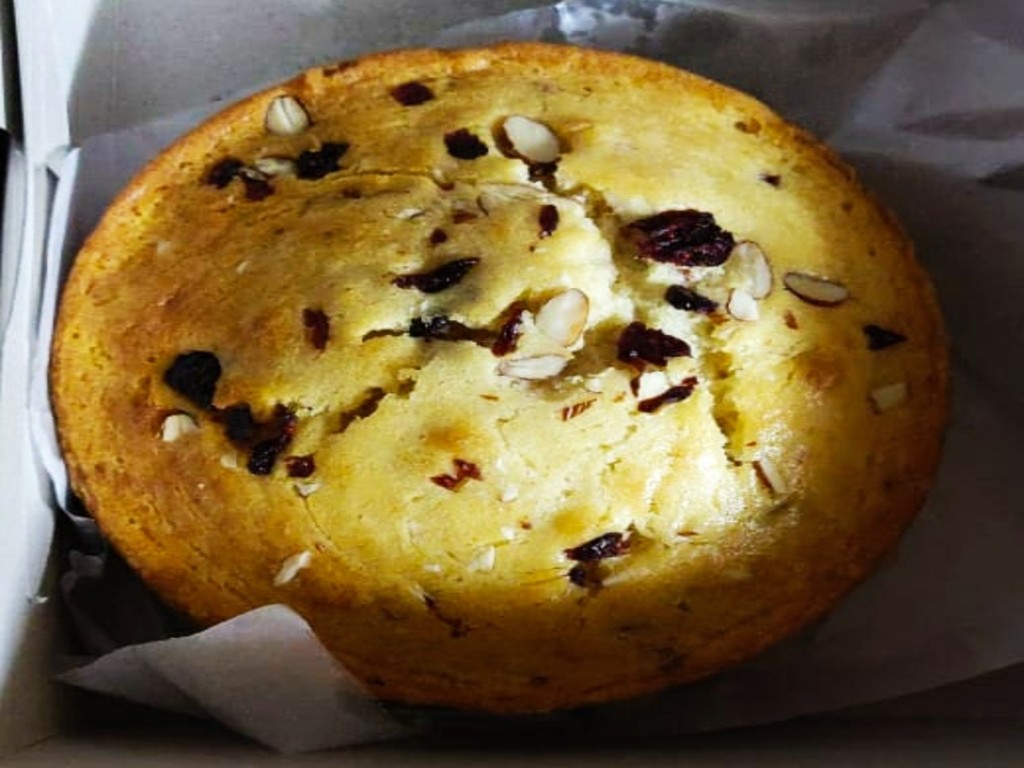Sweta Mishra stands in a corner of her bakery, watching as bread and sweets are boxed, sending messages to every customer to tell them their order is ready for dispatch.
Her careful supervision is central to every step of the baking process, which includes the deployment of the messenger service, Whatsapp to broadcast a new menu of baked delicacies to customers every night at 8 p.m.
Sweta Mishra, along with Asha Mohapatra, started Asha’s Gelhi in 2017. It is located in the city of Bhubaneswar in Odisha, India. The bakery is a tribute to Mishra’s daughter who passed away earlier that year. Mishra used to call her daughter “Gelhi” endearingly, which translates to “lovable” in English.
Asha’s Gelhi is different from other bakeries because it focuses on preservative-free and healthy foods. The bakery boasts a menu with nearly 15 items, both sweet and savoury. It also offers customized cakes, which Mishra bakes and decorates herself. The bakery used to rely on raw materials from outside Odisha which is located in the eastern part of the country. While these features make Asha’s Gelhi distinct from other local bakeries, they also posed distinct challenges when pandemic lockdowns began across the country.
Early on in the pandemic Mishra says she was afraid that her business would not survive.
Independent businesses around the world have struggled to stay afloat during the COVID-19 crisis and bakeries in India are no different. Indian Prime Minister Narendra Modi imposed a nationwide lockdown from March to June 2020 to restrict the spread of the virus. Naveen Patnaik, Chief Minister of Odisha, imposed a lockdown in Odisha until late August. This has meant that local bakeries, such as a branch of Odisha bakery 99 Bakers Street, have been forced to close.
Home to Odisha’s famous chicken puffs, the closure of 99 Bakers Street has left a void in the community. For the bakery’s regular customers, the now empty plot is a memory of heavily spiced chicken wrapped in light pastry.
Unlike 99 Bakers Street, Asha’s Gelhi survived the pandemic. As a home business run on a micro-scale, Asha’s Gelhi could survive by maintaining its sanitization protocols, social media for collecting orders, and compassionate customer care.
With a shift to sourcing raw materials locally in addition to these sanitation practices, Asha’s Gelhi grew tenfold during the pandemic.
The Asha’s Gelhi pivot
Mishra’s business was vulnerable because it initially had only two regular customers and a staff of 10 employees. When the lockdown stopped interstate travel, Mishra realized she might lose her daughter’s legacy. But with a determination to protect what she and Mohapatra had built, Mishra pivoted to sourcing materials locally.
When Mishra could no longer source refined flour to make her orange walnut tea cake, she started using locally-sourced whole grains. She says this was the healthier option for her customers because whole grains have more fibre. Finding these grains nearby meant a supply of raw materials unaffected by the national lockdown but also an increased cost of production for Mishra.
Sanjay Samal, one of Mishra’s vendors and owner of SS Frozen World, says Asha’s Gelhi is a bakery with enthusiastic staff who have the “patience to struggle.” While Samal’s business lost customers during the lockdown, the order of raw materials for Asha’s Gelhi helped stem some of those losses and, at the same time, helped extend the reach of the bakery.
For Samal, Mishra was not only a loyal customer but a friend who understood the struggles businesses were undergoing. He says he is grateful to work with Mishra.
Cleaning the counter to prevent a COVID-19 encounter
Mishra’s bakery had a sanitization regime of cleaning all counters, machines and utensils every day even before the pandemic. In this respect, COVID-19 changed little.
Priyanka Singhania, one of the bakery’s oldest customers, says this is why she feels she can trust food from the bakery to be just as hygienic as what she cooks at home.
Singhania says she finds neatly packaged, white cardboard boxes at her doorstep every time she orders from Asha’s Gelhi. Mishra uses cardboard packaging so customers can dispose of what might potentially be a transmitter of COVID-19. This pivot helped customers who have toddlers, like Singhania, feel confident that the products were safe for handling and consumption.
Singhania says Mishra’s orange walnut tea cake is the only one her daughter eats. For Mishra, whose mission includes encouraging healthy snacking for children, having a child enjoy her cake is one way she defines success. She feels her focus on products that meet the health needs of every customer has fuelled her business’s growth.

Mishra’s delivery staff was also transporting boxes across the city, so she created protocols to ensure their safety as well.
Prashant Kumar, an employee at Asha’s Gelhi, says Mishra gave the staff free hand sanitizers and masks. Wearing gloves, masks, and face shields was made mandatory for all staff at all times.
Along with physical precautions for her employees, Mishra ensured they had job security during the pandemic as well. Some employees were afraid of losing their jobs because the cost of production rose steeply. But Mishra says she reduced her own salary to ensure her employees received theirs. To meet the rise in demand, Mishra also hired two people. For the safety of customers and staff, Asha’s Gelhi left no base uncovered.
People over profits
By the end of Odisha’s lockdown in August, Mishra’s bakery had become a household name.
Asha’s Gelhi is like a community general store because their owners focus on fostering mutual trust by building relationships with customers. Mishra’s compassion for the people she interacts with is woven into her customer service. This was the case from the bakery’s beginning.
Mishra says starting out small helped build her conviction that small businesses have a duty to treat every customer with empathy.
Singhania says it is this “personal touch of love, care, and trust” that has made her a loyal customer of Asha’s Gelhi.
Lockdowns around the world damaged many small businesses who relied on the physical presence of their customers. But for Asha’s Gelhi, the lockdown was an opportunity to improvise, empathize, and grow.
